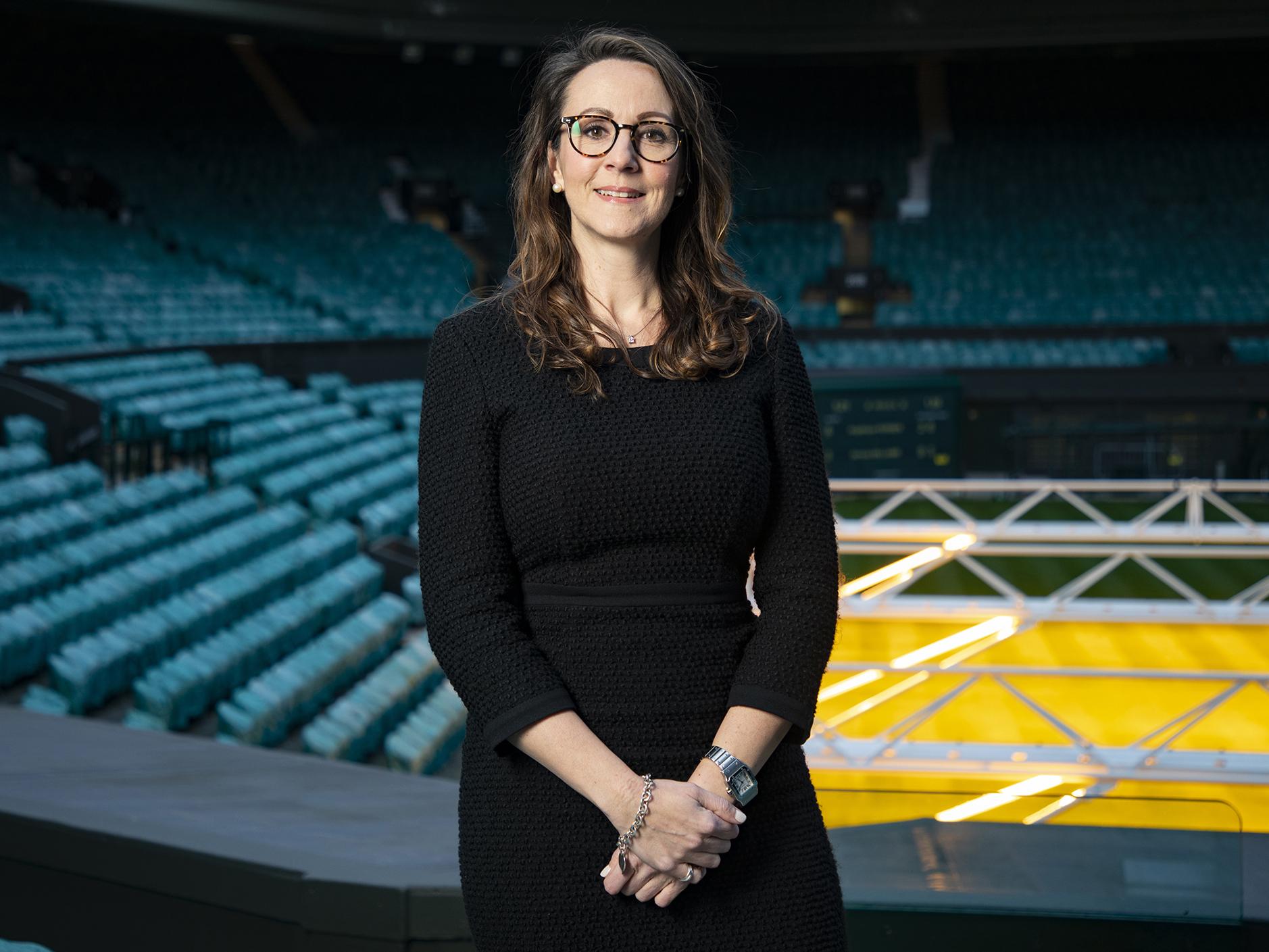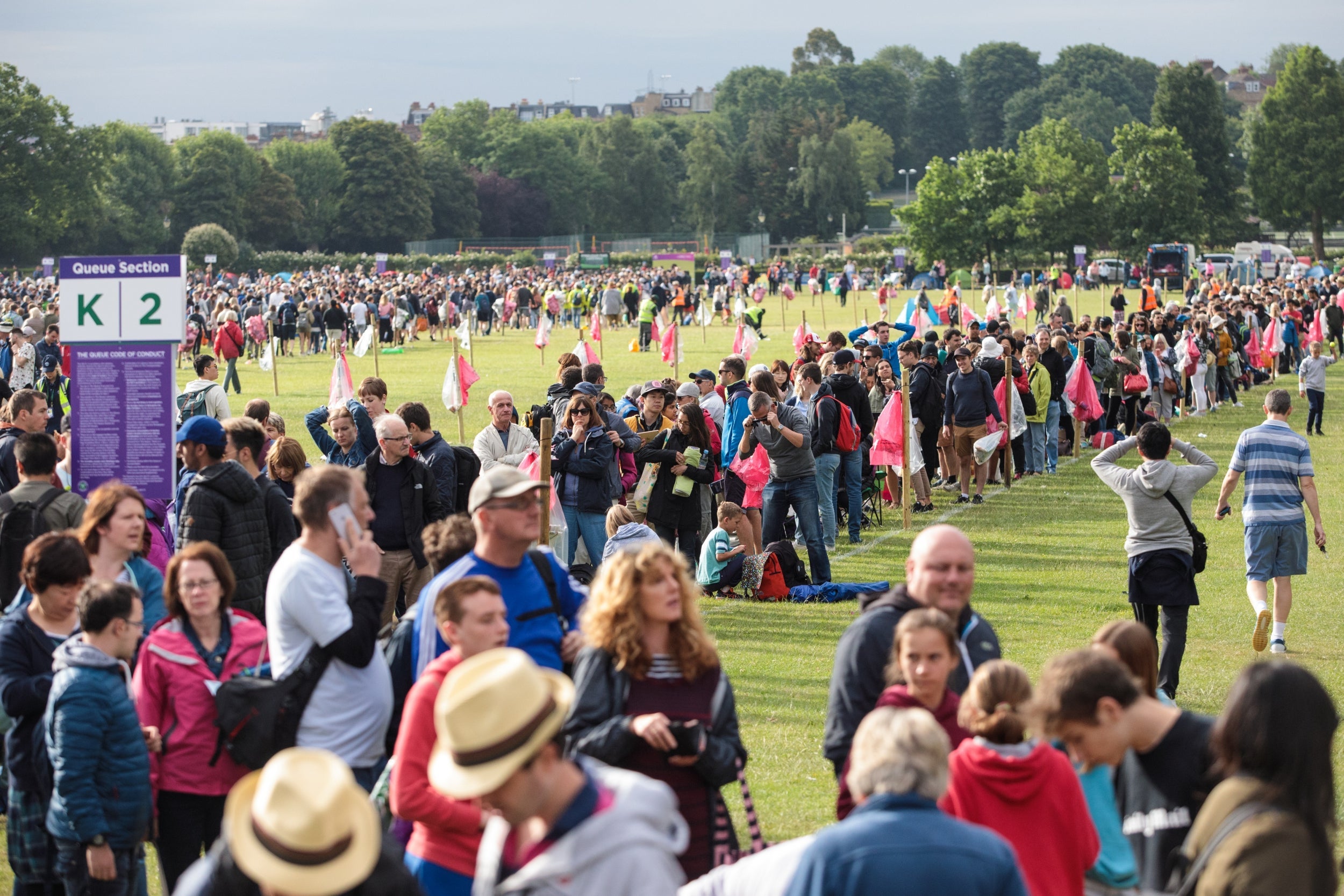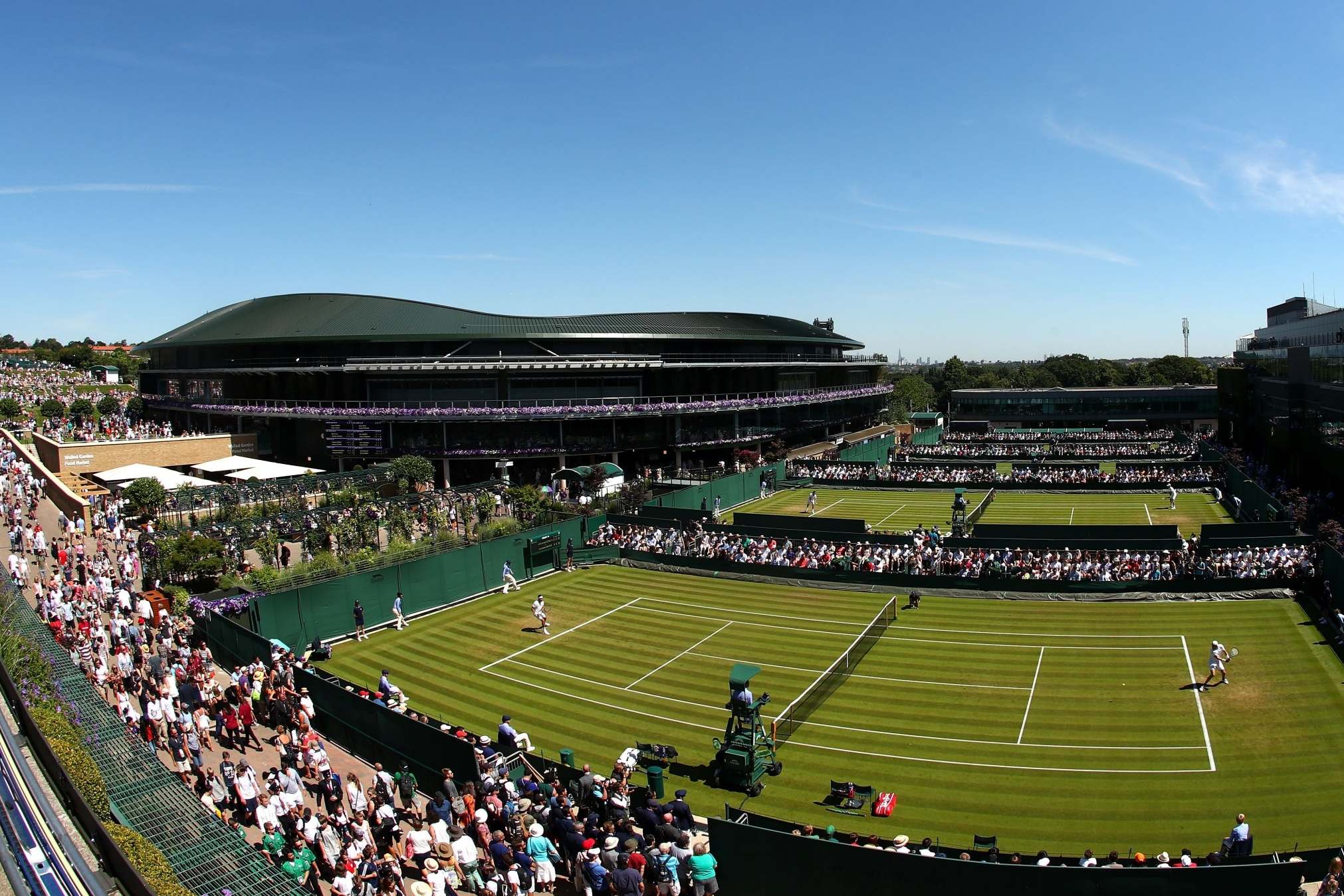Sally Bolton on planning Wimbledon: ‘It’s all about attention to detail’
View from the Top: Responsible for planning one of the UK’s largest and most prestigious sporting events, Wimbledon’s operations director tells Andy Martin how she has modernised the Grand Slam without altering tradition

She looks like a tennis player. Tall and slim and athletic. Or a high jumper. I can just imagine her smashing down a final, victorious ace and leaping over the net. “I always loved sport, but, despite appearances, I was never any good,” says Sally Bolton, strategic planning and operations director at the All England Lawn Tennis Club, aka Wimbledon. “I was more into drama at school.” She starred as one of the Urchins in Oliver Twist. The tallest one.
But then Wimbledon is all about theatre, and looking the part too. “We have all this great technology now,” she says, showing me around the ivy-less building site that is Wimbledon early in the year and pointing out the new retractable roof going in over No. 1 Court. “But it’s still fundamentally white kit against green grass. It hasn’t changed that much. It still has to feel like you’re playing tennis in an English country garden.”
Sally Bolton OBE was born and brought up in Harrogate. Father from Wigan, mother from Yorkshire. Went to university in Leeds. She only moved south five years ago. “I thought I was missing out on the big adventure,” she says.
She doesn’t look anything like a rugby player. But her career began in rugby league. She was studying public relations at Leeds and they had to get work experience for a final-year paper and she volunteered at Leeds rugby league club. This is when they were preparing to host the Rugby League World Cup in 1995. She sent a hopeful email to the marketing director and he agreed to have a meeting. But he forgot the appointment and was obliged to let her through the door in a spirit of contrition. “It was a brilliant first job,” she says. “I had to do anything that needed doing. After that I was totally hooked on sports management.”
Bolton went on to become operations director for the Super League and set up the first Super League Grand Final at Old Trafford. “Nobody believed it would take off. But it has.” She was awarded an OBE for her part in organising the Rugby League World Cup in 2013. Now she has been at Wimbledon for nearly three years. “The Championships is one of the biggest sports events in the world, and it all has to be done professionally – but we also understand that Wimbledon holds a special place in the nation’s heart.”
The odd thing about Wimbledon is you are putting on a show, but you spend fifty weeks of the year planning for curtain-up. “It’s all about attention to detail,” says Bolton. No plastic straws, for example. And they spend a lot of time on horticulture. “Of all the meetings I never expected to sit in, working in sports, it’s probably the ones to do with planting schemes. But it’s a really important part of what we do.” Cream hydrangeas against the general greenery are a particular favourite. “Everything has to bloom perfectly at just the right time,” she says.
The key question for Bolton is, “How do you maintain the tradition and the heritage without becoming old-fashioned and fuddy-duddy?” The All England Lawn Tennis and Croquet Club celebrated their 150th anniversary last year. Back in 1868 croquet was dominant and “Sphairistike” was still an alternative name for lawn tennis. You could get in for one shilling. And they probably queued even then.

Bolton says the Queue is still “an integral part of the event.” Wimbledon may be the only major event where you can still buy a ticket on the day – and a centre-court ticket – and queueing is all part of the fun. If you ask the Queue, they always say, Don’t change anything! “But of course,” says Bolton, “we have to evolve and innovate. But we preserve the essence. You want people to feel it’s the same, or at least familiar, even though it’s different.”
One radical piece of modernisation, rather shocking to my mind: Bolton reckons “racquet” is out, as a spelling. These days, it’s “racket”. I don’t know what the Queue would have to say about it though (apparently “racquet” has been taken up in the US). Once it was known as a “bat”. The good news for the Queue is that there is still no advertising around the field of play. And after a blip back in the Eighties, the kit still has to be “almost entirely white” (including underwear). The look is the same, even if play is tracked by ten different cameras and each shot is registered as one of 4.5 million data points.
It’s lucky Bolton has a degree in PR. She has to do a lot of it these days, what with negotiating with other Grand Slams and trying to be “considerate neighbours” even while making a lot of racket (I think I’ve spelled that right). She says that the key to PR is “good stakeholder management – making everyone believe you’ve considered their point of view.” Which I think she really has done. As regards fellow residents of the south London neighbourhood, “We add value to their postcode, but we are restlessly ambitious.”

The All England Lawn Tennis Club is expanding. They’ve bought the golf club across the street and are taking possession of half the land in 2021. Golfers will be playing nine holes rather than 18. Somewhere down the road it’ll be just a putting green or crazy golf. “We needed more space to improve the overall experience,” says Bolton. “It’s a significant increase in land mass.” Maybe the way things are going Wimbledon really will be All England.
But Bolton says that most of her job is to do with incremental improvements: “Doing everything a little bit better every year. So many things people won’t notice. But they’ll notice the roof on No. 1 Court. We’re a daytime outdoor event. Now we can do nights as well, but only up to 11pm. With a second roof we can offer guaranteed tennis for 27,000 spectators, even if it rains.”
The good news for tennis fans is that you can still get in to see the best players in the world for as little as £25 (which gets you into the outer courts in the first few days). Centre Court is £64 on the first day (then it goes up). At the other end of the spectrum you can become a “debenture holder” – which entitles you to, basically, the life of Riley, over several years – for a cool £50,000.
But regardless of whether you’re in the Queue or sitting in the Royal Box, you will get the same strawberries. Bolton tells me that they are all supplied by one woman in Essex, Marion Regan of Hugh Lowe Farms. Each serving still contains ten strawberries, even though the strawberries are bigger these days. And they are subsidised, to keep the cost down to £2.50. I think the cream is free too.
Join our commenting forum
Join thought-provoking conversations, follow other Independent readers and see their replies
Comments